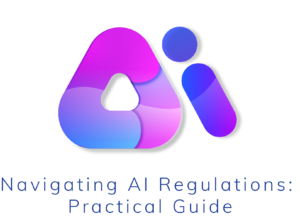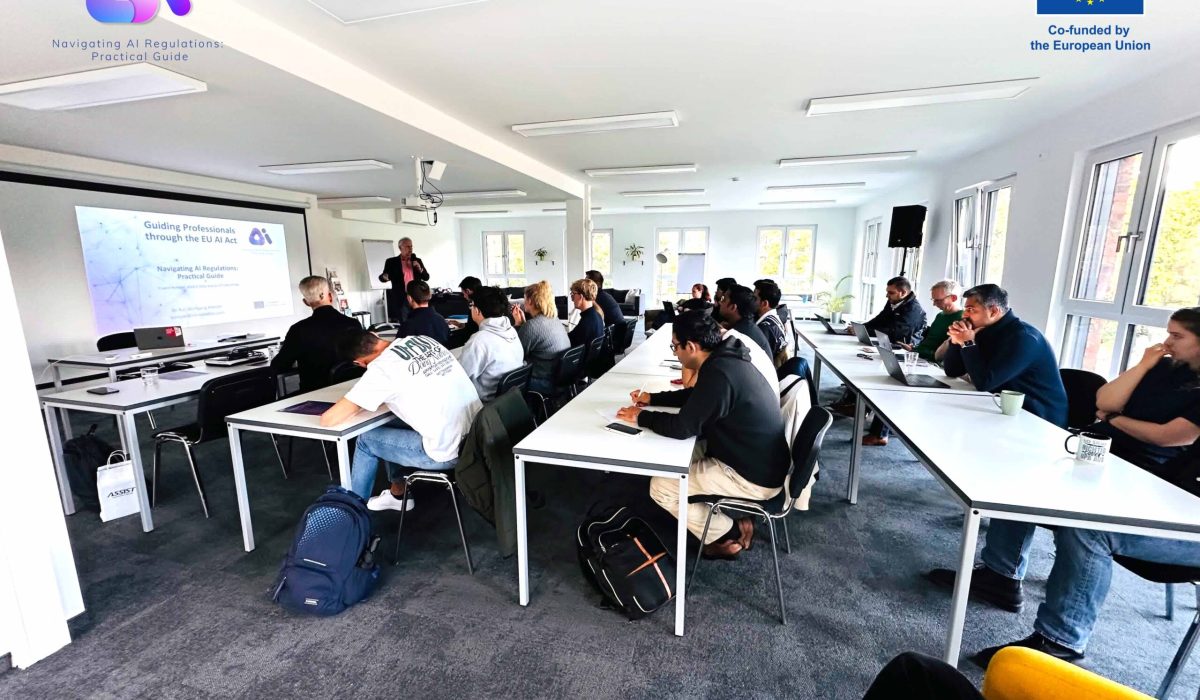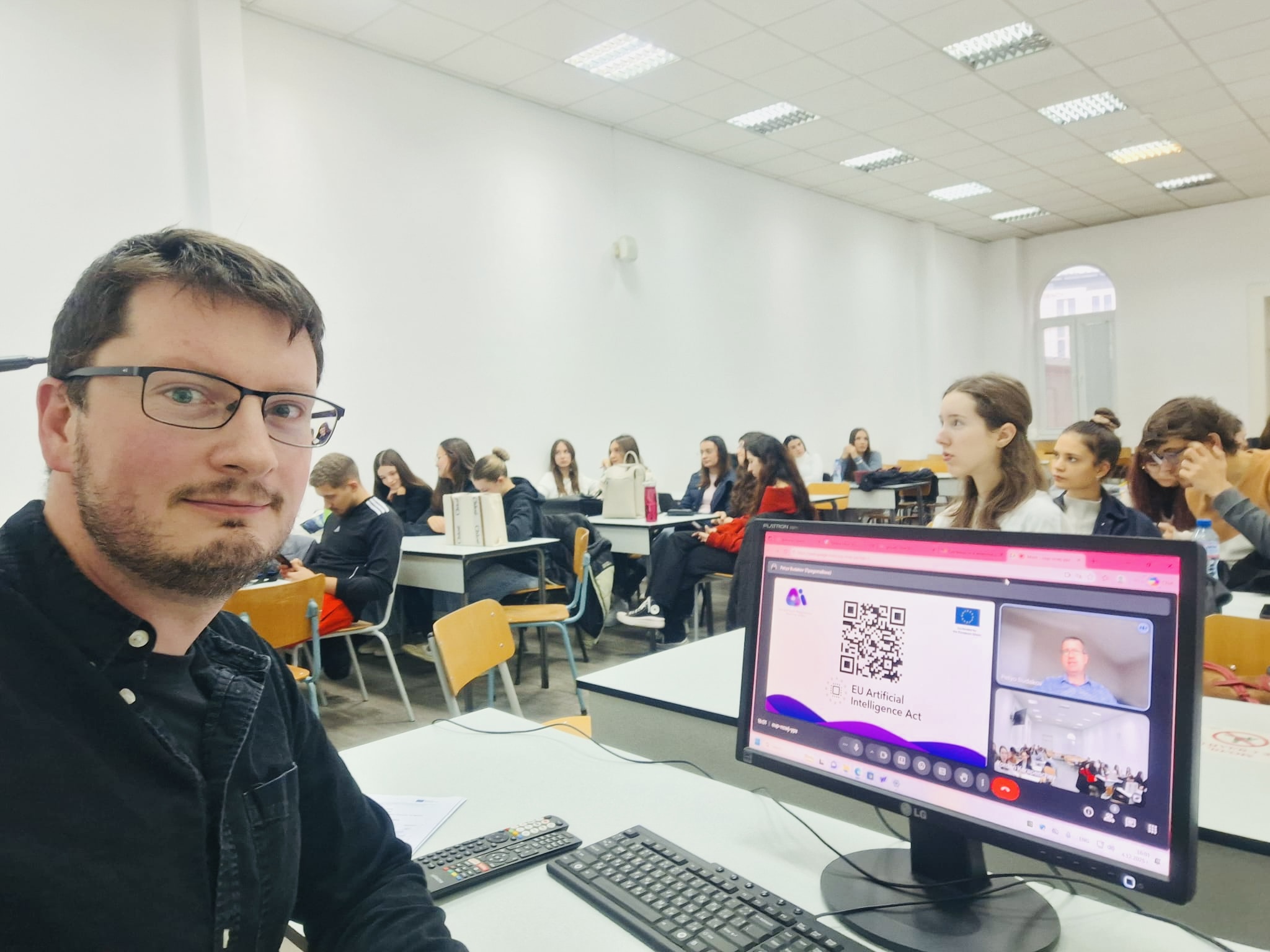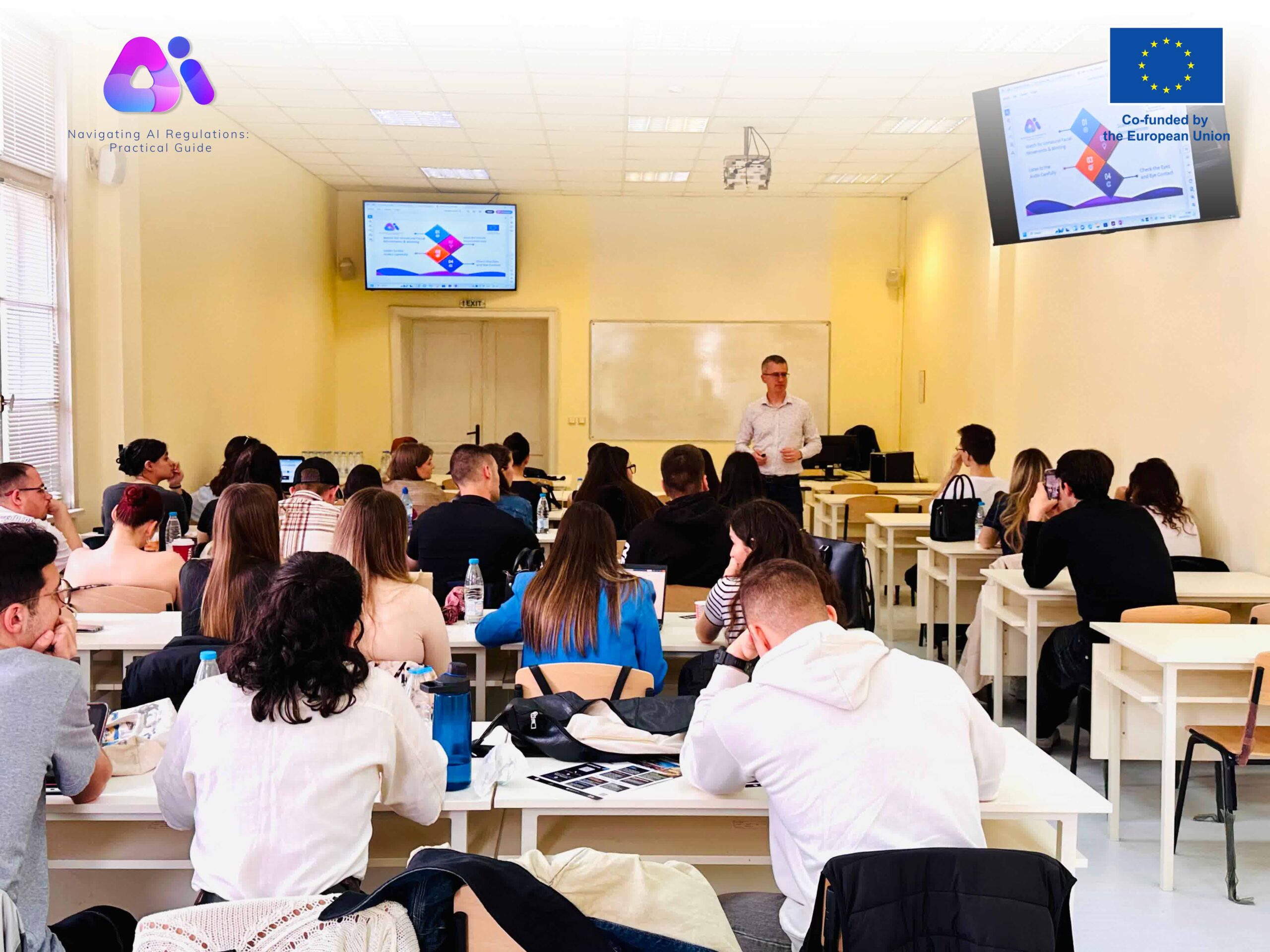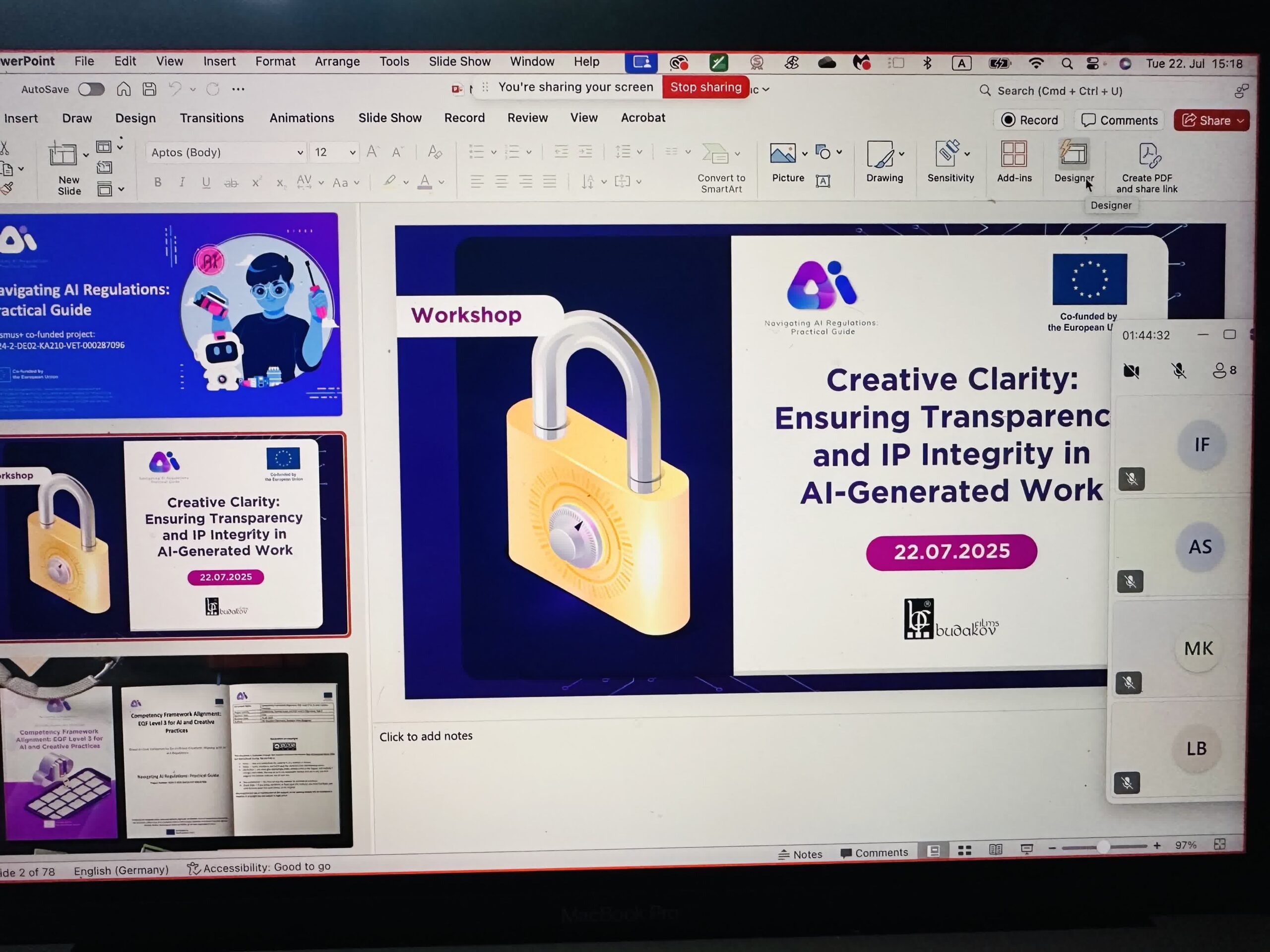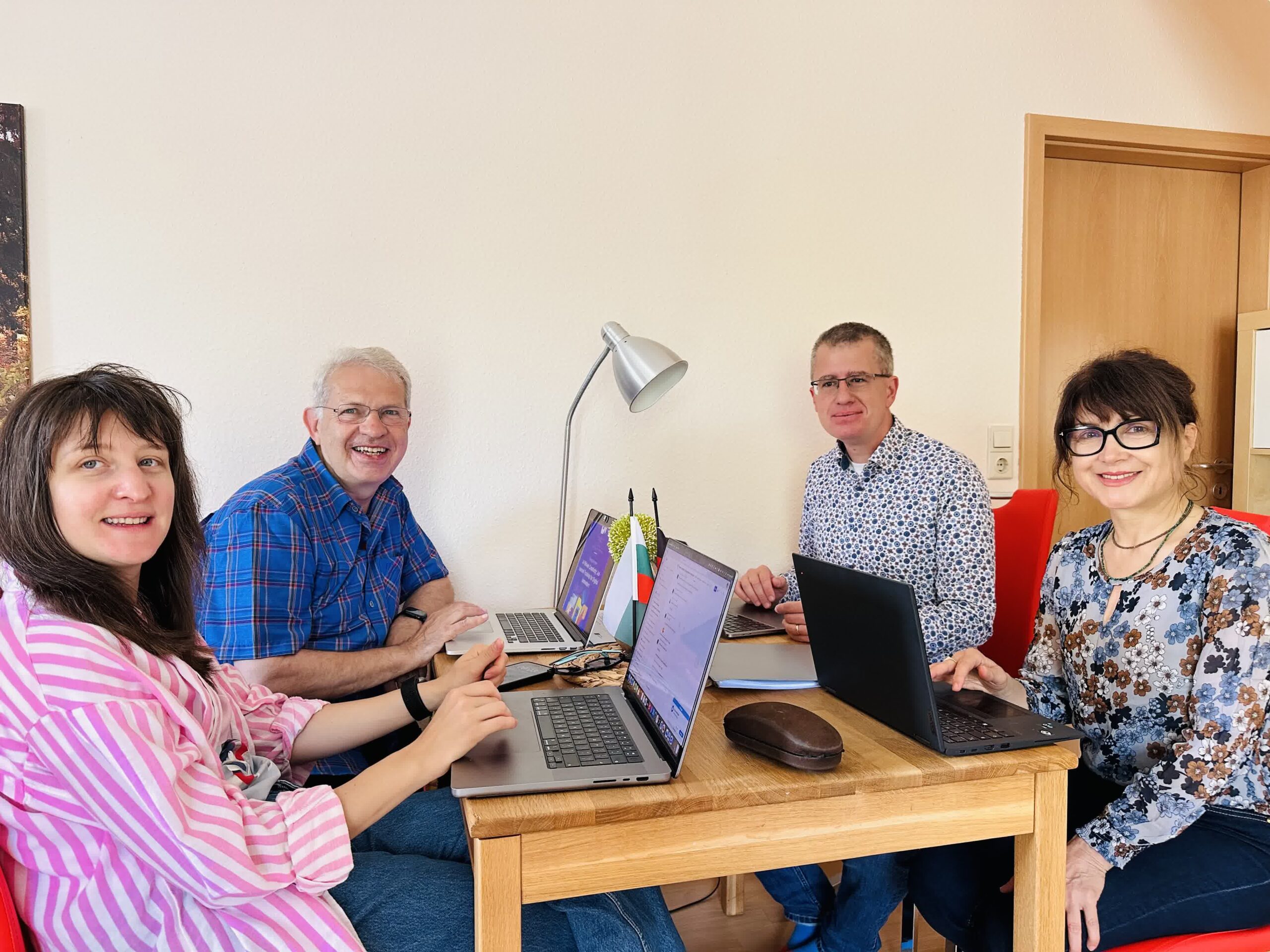On October 1st, 2025, INI-Novation GmbH, in collaboration with Budakov Films, hosted an engaging Multiplier and Dissemination Workshop at the XU Exponential University of Applied Sciences in Potsdam, Germany. The event, titled “Navigating AI: Building Competence in AI & Digital Skills for the Creative Industry” (Project Number: 2024-2-DE02-KA210-VET-000287096), brought together creative professionals, educators, and technology experts to explore one of today’s most critical intersections—artificial intelligence and creativity.
Exploring the Meaning of Responsible AI
The workshop addressed three central questions shaping the digital future of Europe’s creative industries:
- What does the European AI Act mean for creative sectors and other industries?
- How can AI applications ensure compliance with the AI Act, GDPR, ethical standards, and IP regulations?
- How can this interdisciplinary innovation be effectively funded and sustained?
The event opened with welcoming remarks from Prof. Dr. Petyo Budakov, followed by a keynote address from Prof. Dr. Filipe de Castro Soeiro, President of XU Exponential University of Applied Sciences, setting the stage for an inspiring and practical discussion on the role of AI in creative work.
From Policy to Practice: Real-World Insights
Dr. Wolfgang Kniejski, Managing Director of INI-Novation GmbH, introduced the Erasmus+ project “Navigating AI: Building Competence in AI & Digital Skills for the Creative Industry.” He highlighted its mission to equip creative professionals with the knowledge to navigate AI regulation responsibly. Participants were introduced to the project’s training modules and educational videos, available on YouTube, which serve as accessible tools for freelancers, educators, and SMEs across Europe.
Adding a practical industry perspective, Mr. Alexandru Nistor, Vice President of Process Improvements at ASSIST Software, shared valuable insights on how companies can navigate AI compliance while fostering innovation and financing within creative sectors. With more than a decade of experience in AI and software development, his presentation bridged the gap between technical expertise and real-world application.
Dr. Kniejski later expanded on how the AI Act, GDPR, ethical standards, and intellectual property management intersect—illustrating how compliance can be turned into a strategic advantage. He emphasized that trust, transparency, and responsible innovation are not just regulatory obligations but opportunities to strengthen digital ecosystems and unlock new business models.
Engaging Dialogue and Shared Vision
A lively panel discussion, moderated by Prof. Dr. Petyo Budakov, encouraged open exchange between speakers and participants. Attendees appreciated the speakers’ readiness to share practical knowledge, case examples, and long-standing professional experience.
The session concluded with an insightful interview featuring Dr. Wolfgang Kniejski, available for public viewing here:
Watch the interview on YouTube
Key Takeaways
During the informal networking session, participants summarized their key impressions:
- Creativity and regulation can—and must—go hand in hand to build a responsible AI future.
- User and market orientation are as vital to scientific excellence as research and theory.
- Software companies are already adapting effectively to the AI Act, setting examples for other sectors.
- In the creative sector, professionals must develop a deeper understanding of what “responsible creativity” truly means.
A Step Toward an Inclusive and Ethical AI Future
With 30 participants representing various parts of the creative ecosystem, the event fostered collaboration, knowledge exchange, and reflection on how AI can empower—rather than replace—human creativity.
As part of the Erasmus+ initiative, Navigating AI continues to promote ethical, inclusive, and innovative AI integration across Europe’s creative industries, ensuring that technology serves both creativity and society responsibly.
Funded by the European Union. Views and opinions expressed are however those of the author(s) only and do not necessarily reflect those of the European Union or the European Education and Culture Executive Agency (EACEA). Neither the European Union nor EACEA can be held responsible for them.
Project No: 2024-2-DE02-KA210-VET-000287096
